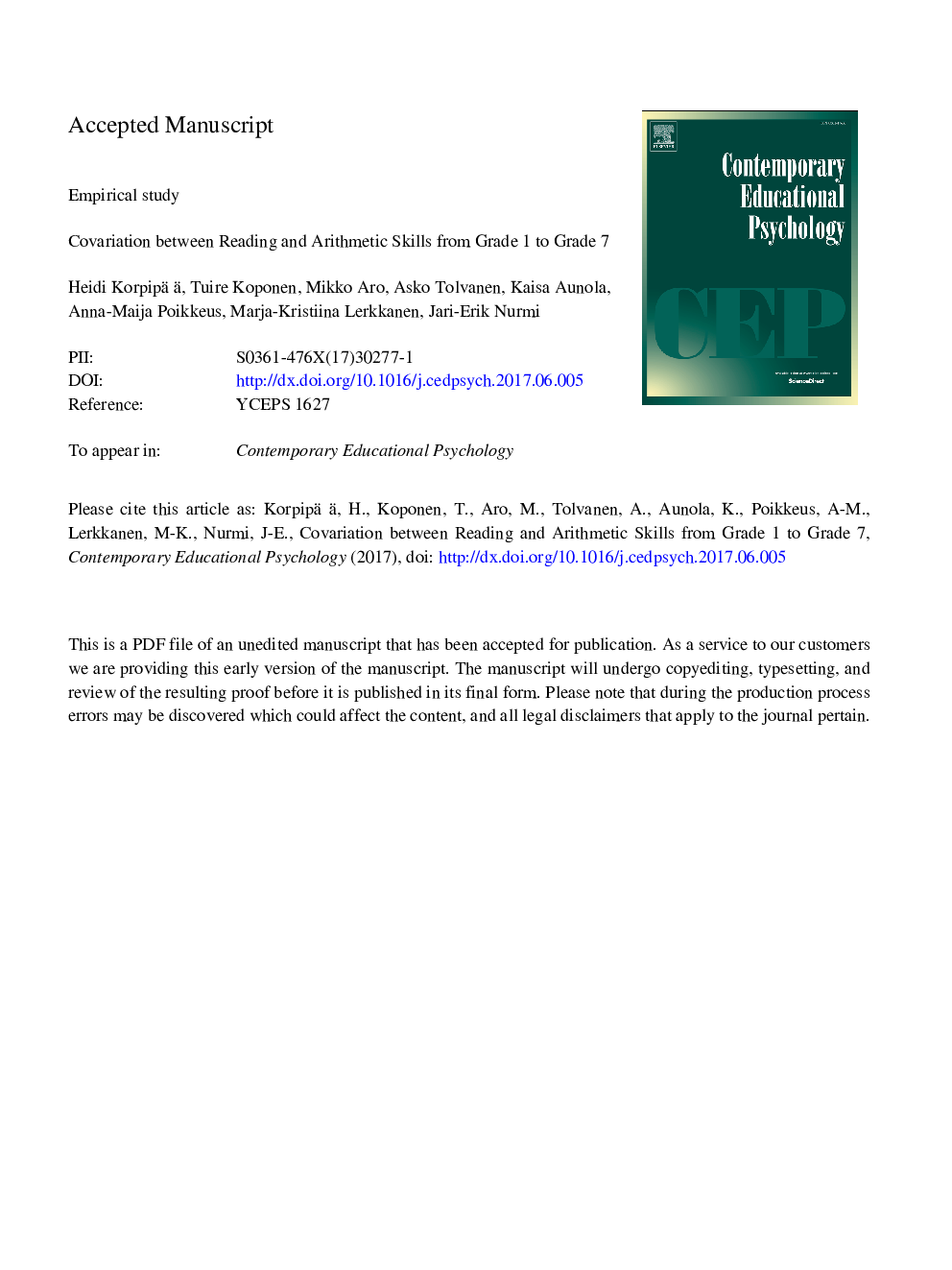| Article ID | Journal | Published Year | Pages | File Type |
|---|---|---|---|---|
| 4937850 | Contemporary Educational Psychology | 2017 | 43 Pages |
Abstract
This study examined the extent to which reading and arithmetic skills show covariation at Grade 1 and at Grade 7, to what extent this covariation is time-invariant or time-specific, and to what extent different antecedents will predict these time-invariant and time-specific portions of the covariation. The reading and arithmetic skills of a total of 1335 Finnish children were assessed at the end of Grade 1 and then again at the end of Grade 7. Phonological awareness, letter knowledge, rapid automatized naming (RAN), counting, and parental education levels were measured in kindergarten; working memory at Grade 1 and nonverbal reasoning at Grade 3. The results showed that reading and arithmetic had a substantial amount of covariation at grades 1 and 7, and that most of the covariation between these grades was time-invariant and could be predicted by RAN, counting, letter knowledge, working memory, and nonverbal reasoning. The time-specific portion of the covariation between reading and arithmetic in Grade 1 was predicted by phonological awareness, letter knowledge, and counting; while time-specific covariation in Grade 7 was predicted by parental education level and nonverbal reasoning.
Related Topics
Social Sciences and Humanities
Psychology
Applied Psychology
Authors
Heidi Korpipää, Tuire Koponen, Mikko Aro, Asko Tolvanen, Kaisa Aunola, Anna-Maija Poikkeus, Marja-Kristiina Lerkkanen, Jari-Erik Nurmi,
